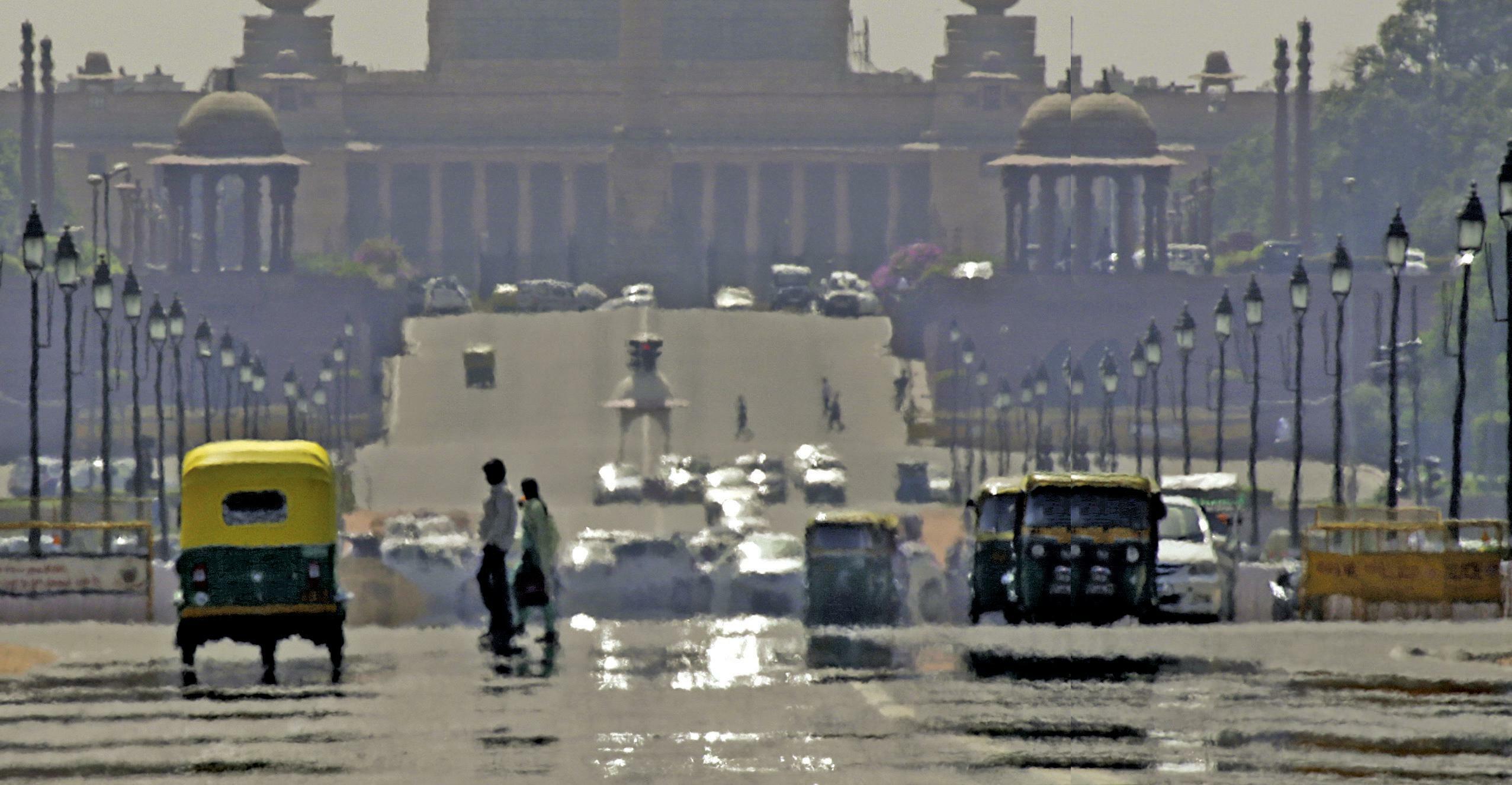Prøve GULL - Gratis
URBAN DISCOMFORT
Down To Earth
|May 01, 2024
Poorly planned, heat-trapping infrastructure, along with dwindling natural spaces, turn up the temperatures in major Indian cities
-

IN A warming world, urbanisation has a profound impact on heat. As a city's population grows, infrastructure needs to be developed to cater to its requirements.
Cities contribute more than two-thirds of global carbon dioxide emissions, according the UN Environment Programme. However, their environmental impact goes beyond emissions. As a city grows, the way buildings, roads and railways are laid out; the density, height and size of buildings, and the materials used; the amount of green spaces and water bodies; and level of human activities such as use of vehicles and airconditioners together determine how much heat is retained in the immediate area.
When released, this heat raises the temperatures of the nearby atmosphere. As the grey infrastructure gets denser and more concentrated, it erodes the natural spaces that act as heat sinks and keep the environment cool (see 'Influencing factors'). If left unchecked, such development could create an urban heat island effect, with cities recording high temperatures that can adversely impact the health of people, and also potentially be fatal.
To analyse the status of urban heat islands in the country and establish the ongoing heat burden that is a result of their development, Delhi-based think tank Centre for Science and Environment (CSE) conducted a study in nine cities-Delhi, Jaipur, Kolkata, Nagpur, Pune, Ahmedabad, Hyderabad, Chennai and Bhubaneswar.
These cities, which are of different sizes and are located in different climatic zones, show that the problem of heat is not restricted to a specific kind of climate or geography.
Denne historien er fra May 01, 2024-utgaven av Down To Earth.
Abonner på Magzter GOLD for å få tilgang til tusenvis av kuraterte premiumhistorier og over 9000 magasiner og aviser.
Allerede abonnent? Logg på
FLERE HISTORIER FRA Down To Earth

Down To Earth
THE GREAT PIVOT
China's moves to transition to clean energy offer critical lessons to India
4 mins
March 01, 2026

Down To Earth
COAL V CORRIDOR
A proposal to mine coal along a corridor that links two tiger reserves in central India is a step away from getting final clearance. The move could affect movement and genetic diversity of tiger populations in the region
8 mins
March 01, 2026

Down To Earth
India's challenging AI predicament
Hobbled by lack of innovation and AI skills in its crucial technology sector, India is focusing on a ruinous plan to host data centres
4 mins
March 01, 2026
Down To Earth
China to implement zero tariffs across Africa
CHINA ON February 14 announced that it will implement zero tariffs for imports from all the 53 African nations it has diplomatic relations with, starting from May 1.
1 min
March 01, 2026
Down To Earth
Poverty, sans the threshold
MEASUREMENT OF poverty is a fundamental exercise, needed to direct development programmes.
2 mins
March 01, 2026

Down To Earth
A bridge across forever
For two decades, a Chhattisgarh village remains stuck in a loop of building temporary river crossings to access markets and sell forest produce
4 mins
March 01, 2026
Down To Earth
Liveable cities need a new model
CRY FOR my Delhi. This is my city—my family records many generations who have lived here.
3 mins
March 01, 2026

Down To Earth
Real impacts of the changing seasons
This refers to the article \"1,500 days, and an alarm for new climate\" (1-15 December, 2025).
1 mins
March 01, 2026

Down To Earth
‘It’s a systematic effort by US to dismantle climate policy’
The US, the world's largest historical emitter of greenhouse gases, has overturned its “endangerment finding”, the legal foundation for regulating emissions under the Clean Air Act since 2009.
4 mins
March 01, 2026
Down To Earth
Amazon turned carbon source in 2023 drought
EXTREME DROUGHT and a prolonged heatwave in 2023 pushed parts of the Amazon rainforest from acting as a carbon sink to becoming a carbon source for three months, according to a February 13 study published in the journal AGU Advances of the American Geophysical Union.
1 min
March 01, 2026
Listen
Translate
Change font size
